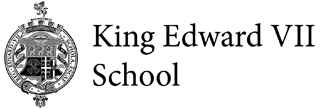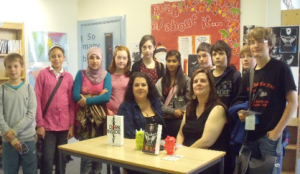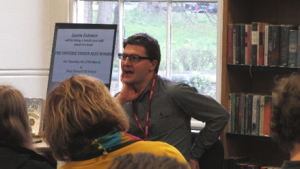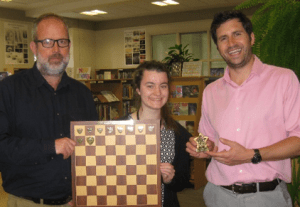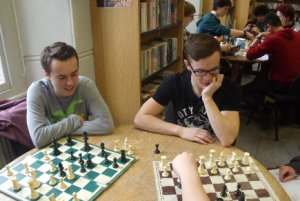Upper School Library
Why use the school library?
A silent work place for Post 16 students to focus and study during lesson time
Access to over 12,000 fiction, non-fiction and reference books
11,000 recommended websites on the library software system
Over 20 weekly/monthly periodicals covering a wide range of subjects
Daily broadsheets
A dedicated library page on the school MLE with access to the library catalogue, JSTOR (online journal storage and a must for A level research,) Top Apps, recommended by teachers to support learning, and other online periodicals including New Scientist, The Economist and Prospect.
A growing selection of World Cinema DVDs to support the language department
Careers section covering Post 16 and Post 18 opportunities. This has a comprehensive set of books on all job groups as well as a range of prospectuses that give information to help students choose the best course and university
Large Gap Year display and dedicated page on the MLE
Computers
Open after school as a quiet place for homework, study and research
A member of staff to help at all times —don’t be afraid to ask
Book Group for each Key Stage meeting every half term
Post 16 reading mentor scheme with lower school students
Annual Chess tournament
Author visits – most recently Gavin Extence, Marina Lewycka and Elizabeth Wein
Upper School
Open Monday to Friday 8am-4pm
Lower School
Open Monday to Thursday 8.45-4.30pm and 9am Till 3pm on Friday
The school has a fully stocked, staffed library on both sites. During lesson time at upper school the library is a quiet place for private study; at lower school teachers may bring groups down for research and library skills.
No need to join – You are automatically a member of the library. You can borrow up to 4 resources for two weeks, longer if no-one else has reserved them.
At break and lunch time both libraries have a more relaxed atmosphere; students from all years play chess, scrabble or perudo, or they may be reading, catching up with homework or just socialising quietly with their friends.
The library plays a central role in learning and teaching and helps meets the needs of all learners. It contributes in many varied ways to the school’s main aim of creating confident individuals, responsible citizens, successful learners and effective contributors.
